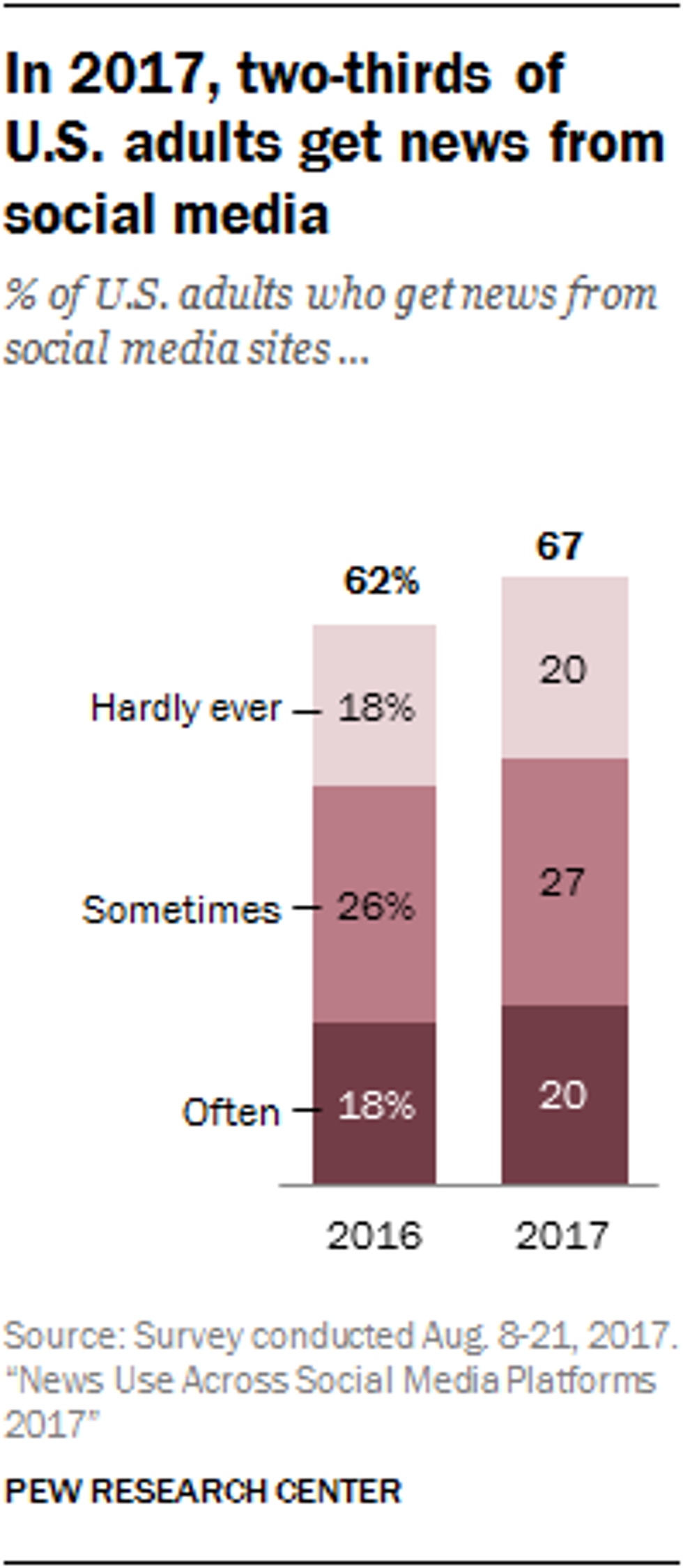
The days of sitting down with your family to watch the nightly news on a television are starting to fade away amidst the rise of newer, more innovative platforms. With everyone being connected on their devices 24/7, there is a drive for all digital media to be more and more accessible. In entertainment, consumers no longer have to wait until their favorite TV program comes on, they can simply stream it online from sources like Netflix, Hulu, and Amazon. Likewise, with the news, people can choose between NPR and CNN, among a plethora of other news outlets. Print newspapers are on the decline, with digital subscriptions to The Washington Post and The New York Times soaring instead.
"Despite Facebook's leaning away from news responsibility, it is still the dominant social media site for Americans to get news, as it was in 2017" (Nieman Lab).
This is due to many reasons, but most likely it is simply convenience. If adults are already scrolling through their feed to see what their friend Jenny is doing this weekend, they would like to get updated on the ongoing border crisis as well. This mentality has pushed journalism to fulfill these needs in an accurate, efficient, and creative way. While some critics say this is a narrow-minded approach to assume that people will only read the news that shows up in their feed, others argue that the way people are staying informed does not affect the quality of how they are informed. As a generalization, older generations tend to prefer more traditional sources, while those who grew up with the internet tend to prefer using the internet.
When a class of college students were asked about where and how they consume the news, many respondents cited Twitter and Snapchat as their daily source. But this does not completely rule out traditional pathways to the news. Several students put out the disclaimer that they don't always take what they read on social media at face value. Readers will often see a headline or a trending hashtag on Twitter and then do more in-depth research on multiple sites to fact-check the information. With the sheer amount of information available on the web, it's no surprise that the upcoming generation is skeptical of accuracy in the news. But we shouldn't let that skepticism develop into apathy.
The press is critical to democracy, because it is what informs the public, and educated voters are powerful. Not caring about what happens around you is a privilege that not everyone can have. To the busy college student, there are podcasts that you can easily listen to in between classes, apps that regularly brief you on current events, and websites that present articles with engaging graphics and videos. Seek out what the best method is for your lifestyle and stay updated on what's going on in your world.
Feel free to comment below your comments and insights or share your favorite way to get the news.


















